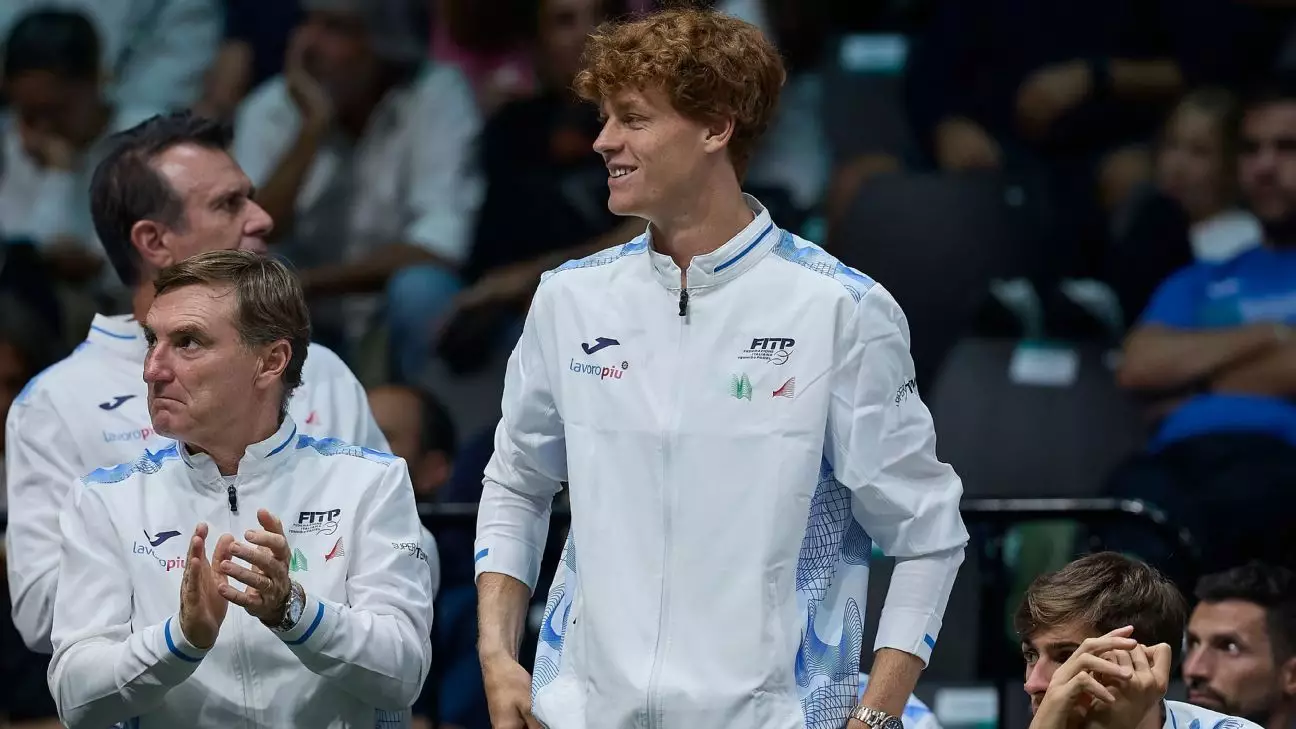Jannik Sinner, the reigning US Open champion, recently found himself embroiled in a scandal that tested both his integrity and resilience as an athlete. Following two positive steroid tests related to an unintentional doping incident, Sinner made a significant change in his team, parting ways with his previous fitness coach and physiotherapist. In a world where athletes are held to high standards, the public often wrestles with the implications of such controversies, questioning the athlete’s character and the integrity of the sport. Sinner’s decision to move forward with a new team represents not just a personal choice but a broader conversation about accountability in professional tennis.
With Marco Panichi stepping in as Sinner’s new fitness coach and Ulises Badio taking up the role of physiotherapist, the transition marks a renewal of focus and strategy. Both Panichi and Badio come with seasoned experience, having previously worked alongside tennis titan Novak Djokovic. Their arrival signifies Sinner’s commitment to surrounding himself with a team capable of guiding him through the competitive landscape of tennis, particularly after navigating the turbulence of a doping scandal. This shake-up in his support system is crucial as he prepares for forthcoming challenges in Beijing and Shanghai, further underscoring his need for a trustworthy and skilled team.
The scandal that led to this remarkable shift in Sinner’s camp involves serious implications and raises critical questions about athlete welfare and management. Sinner’s positive tests were linked to the steroid Clostebol, which entered his system inadvertently through treatment by his former physiotherapist, Giacomo Naldi. The revelation that Naldi had been treating Sinner with contaminated equipment reveals a chain of negligence that could tarnish the reputations of all involved. While Sinner’s situation concluded without a suspension, the stigma attached to doping in sports is profound and enduring. The challenge now lies in how Sinner can rebuild his image and establish trust among fans as he forges ahead in his career.
Sinner’s decision to maintain his relationship with osteopath Andrea Cipolla further solidifies the importance he places on a multifaceted approach to his training and recovery. Balancing various specializations—from nutrition and physiotherapy to mental health—is crucial in optimizing an athlete’s performance. However, the seamless integration of new team members will ultimately determine the efficacy of this revamped support system. As new challenges arise in upcoming tournaments, the adaptability of Sinner and his team will be paramount in cultivating both muscle memory and strategic execution.
Sinner’s ability to rebound from controversy is indicative of his character. The announcement of his new coaching team has been met with optimism rather than skepticism. By addressing past mistakes and fostering a new environment of respect and professionalism, Sinner sends a powerful message: athletes are more than their setbacks. Moving forward, his commitment to rigorous training and ethical integrity will not only hold him accountable as a professional athlete but also inspire a new generation of players who aspire to compete on the world stage, free from the shadows of scandal.


Leave a Reply